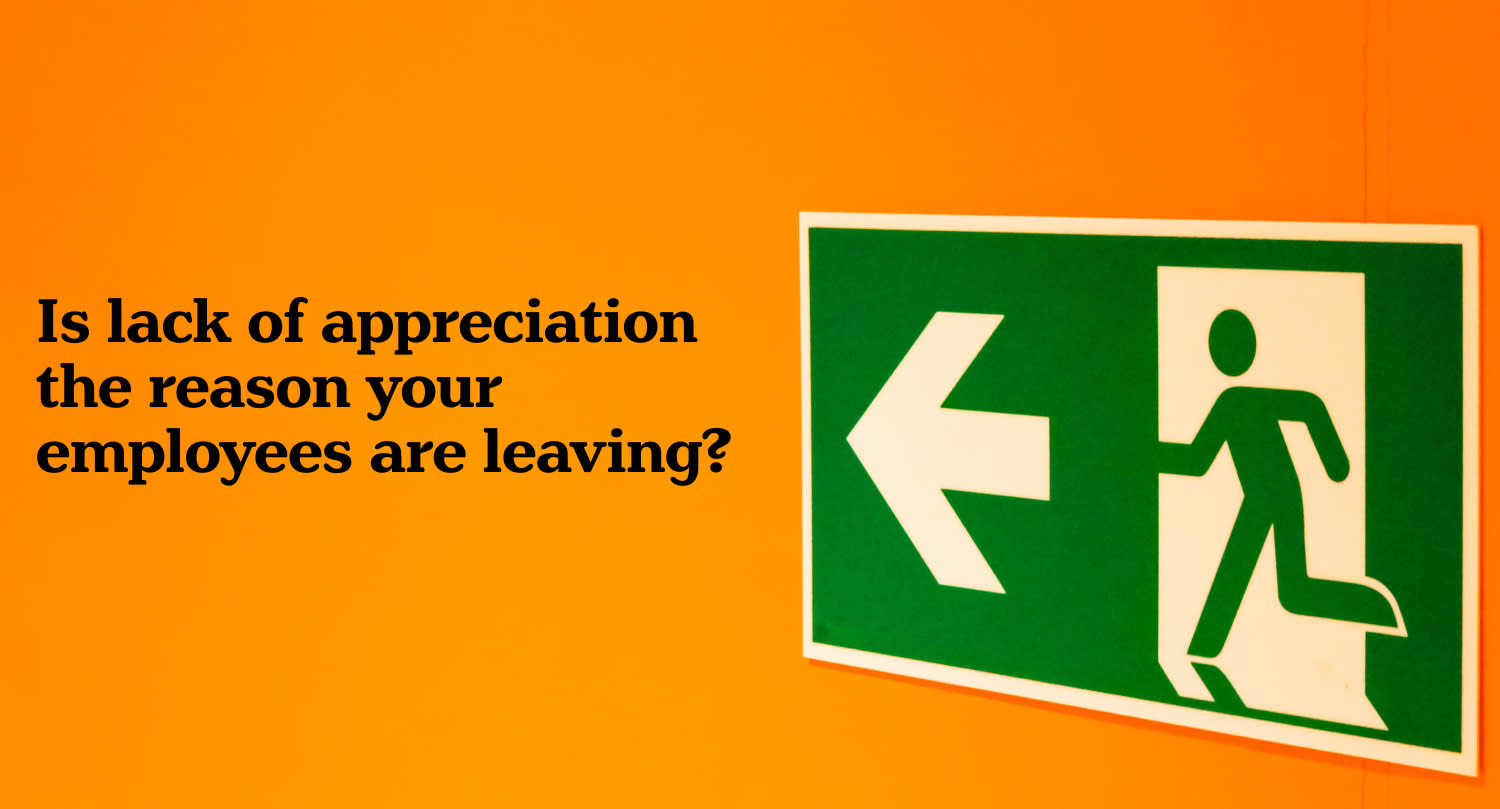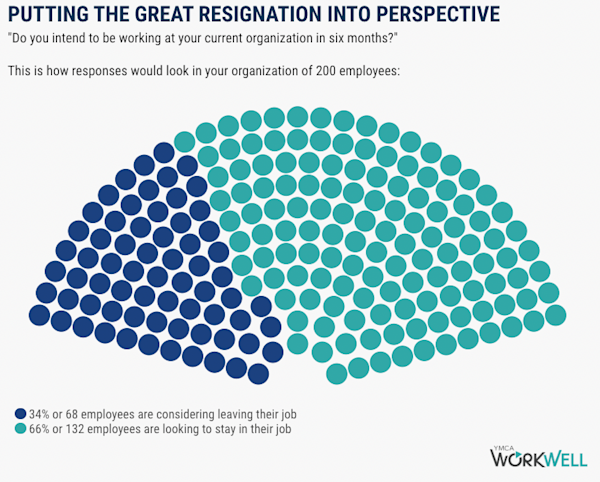Is lack of appreciation the reason your employees are leaving?
August 11, 2022

News of layoffs at companies like Hootsuite and Shopify may have you thinking that The Great Resignation has waned. But a recent Special Issue Report from YMCA WorkWell tells a different story.
News of layoffs at companies like Hootsuite and Shopify may have you thinking that The Great Resignation has waned. But a recent Special Issue Report from YMCA WorkWell tells a different story. During conversations with leaders across numerous industries, the YMCA WorkWell team found that turnover and staffing shortages are still businesses' most significant challenges today.
Layoffs have only exacerbated the situation, with employees reporting that they feel taking a vacation or using sick days would hurt their team—a team already struggling with fewer people to get more work done. This is increasing burnout, too, leading to more employees looking for different opportunities outside their current workplace.
The report says that 34% of surveyed workers were either expecting to leave or open to leaving their current role in the next six months, a 36% increase from responses to their 2021 Workplace Well-Being Report.
One finding that jumped out to our team was that employees reported appreciation as critical to feeling like they can be at their best at work. We sat down with Dave Whiteside, Director of Insights at YMCA WorkWell, to learn more about the survey results and how leaders can bring authentic appreciation to their teams.

Every leader has a locus of control of the things they can impact. A leader can’t change COVID, or the markets, or often even the success of their organization. But they can have a positive impact in their relationships with their team, and those relationships can have a big impact on their team’s well-being.
Dave Whiteside, Ph.D
Director of Insights at YMCA WorkWell and YMCA of Three Rivers
With the report, how did those surveyed talk about recognition—or lack of recognition?
Generally, appreciation is often the top employee need we have seen in our data in the last 12 months. It's actually been really interesting how employee needs have changed throughout the pandemic. The first 12 months of the pandemic were all about communication and dealing with uncertainty. There was so much uncertainty that employees needed answers about how their work, their role, and their policies were changing. But as we got used to COVID, the big needs evolved to be appreciation, burnout, and workload. And in this new Special Issue Report, we highlight how feeling unappreciated, overworked, and burnt out are playing a huge role in why so many people are leaving their jobs.

YMCA WorkWell “Combatting The Great Resignation With Workplace Well-Being,” July 2022
Do you think remote and hybrid work has made it difficult for leaders to pick up on these cues from their employees?
I think there are definite challenges of remote and hybrid work, but we see these trends in both remote work and in-person work. One of the biggest challenges we see in the data is that leaders are also feeling burnt out and under-appreciated, so even many great managers who would typically pick up on those cues, either don’t have the capacity to notice them or feel like they don’t have the energy to give even when they do. We also see that that same kind of turnover risk also lies within leaders. It's one of the only times I've seen data where these turnover risks are occurring throughout entire organizations and it speaks to just how significant of a challenge we’re currently facing.
I think it’s human nature to isolate ourselves when we get tired, but I’m a firm believer that in the times when we’re tired, those uplifting connections can be what we need most.
Do you see things like the daily layoff news increasing the stress that managers and employees feel?
Yes. It's interesting. During the pandemic, we’ve heard of The Great Resignation and it felt like everyone was leaving and organizations were scrambling to find staff. Now, you also have organizations conducting big layoffs as well. It feels like regardless of what industry they’re in, leaders seem to be facing some sort of enormous challenges at the moment.
It's also important to remember that survivor guilt is a very real thing.
Leaders often assume that the employees who do not get laid off will be okay - they were “safe”. But in reality, being in that group that’s left behind is also hard. There’s often less people doing the same amount of work and people have lost connections that mattered to them and it’s where appreciation becomes particularly important. And while many leaders are going through a great deal of stress right now, I try to remind people that appreciating people energizes you. It feels good to tell someone they’re doing a great job, to pull them aside and tell them that you really value their work and their role in your team. I think it’s human nature to isolate ourselves when we get tired, but I’m a firm believer that in the times when we’re tired, those uplifting connections can be what we need most.
A leader can’t change COVID, or the markets, or often even the success of their organization. But they can have a positive impact in their relationships with their team, and those relationships can have a big impact on their team’s well-being.
Are there things managers can do to help alleviate stress on their teams while also taking care of themselves?
It's always a challenge as a leader. Every leader has a locus of control of the things they can impact. A leader can’t change COVID, or the markets, or often even the success of their organization. But they can have a positive impact in their relationships with their team, and those relationships can have a big impact on their team’s well-being. One of my favourite pieces of advice is to “explain the why”. Leaders often know that it’s important to say “thank you” to show recognition, but go one step further. Make sure your thank you explains why that person is so valuable to you and your team, why they matter, and why they stood out. It helps make it about them and not just what they have done, and that’s how you can include both recognition and appreciation.
I feel that everyone's crying out for that kind of appreciation. It just needs to be personal.
You can read the full Combatting The Great Resignation With Workplace Well-Being report on the YMCA WorkWell website.
Get Started
Start building your recognition culture with us today.
Ready to make a difference in your employees’ lives and watch your company culture thrive? Contact us to speak with a member of our passionate team.

